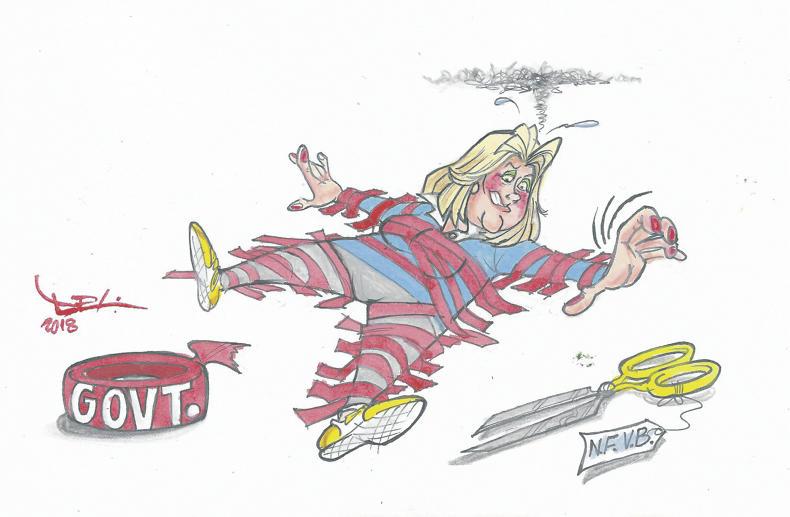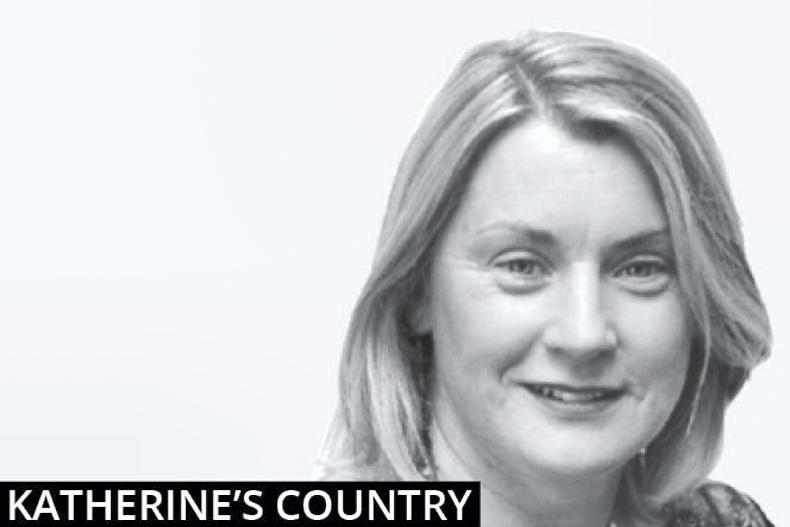Last Wednesday, I returned from Mullingar, where I was attending and speaking at a conference organised by the National Federation of Voluntary Bodies. The members provide services to people with disabilities all over the country on behalf of the HSE. Without them, life would be very different for a lot of people and their families.
Over the last decade, governance of all kinds has been introduced to this sector. It has been with just cause, due to the scandals that ripped through our society – from abuse to lack of accountability – over the last decade. Things had to change.
Subsequently, over time, the Government, the Department of Health and HSE have introduced multiple safeguards. Consequently, there has been an overkill of bureaucracy, creating an enormous amount of work and suppressing the autonomy of the voluntary sector.
CROSSROADS
I believe we are at a crossroads. It is time to rationalise some of this workload and focus on delivering a valuable service for people with disabilities, where they can live ordinary lives within their communities with the necessary supports. This type of service delivery is referred to as “person-centred” support.
I am a parent, but I’m also a voluntary board member of Cope Foundation that provides support to 2,300 individuals with intellectual disability and/or autism. I told the conference that we needed to be able to innovate and make time for “blue-sky thinking”, so that we can do extraordinary things for people.
It would be refreshing to have autonomy to plan and use the funding creatively. There are many, many people who need support to lead happy and fulfilled lives. Parents agonise about this and often don’t advocate for their son/daughter for fear of rocking the boat and losing things like transport or other services.
On the drive home, I was conscious that Diarmuid was going on an overnight outing with his friends and support team from “The Hub” in Cope Foundation the following morning. We had talked about it before I left. I had encouraged him to organise his overnight bag, which he would be good at doing.
On my return, I found everything in order. Diarmuid had his bag packed. I asked him about the important things and checked that he had enough money. However, I was very conscious that there was something not quite right with him.
You see, intellectual disability never goes away. Most of the time we all – and I mean the family – cope very well with Diarmuid’s extra needs. I admit that sometimes we do get frustrated. We want him to be the best that he can be, and then something happens to highlight his shortcomings. Tim and I have discussed this and we agree that there are times when it makes us sad. I’m sure it’s the same for his siblings.
We’ve long since recognised that when Diarmuid is ill, he will not tell us until he is very sick. That makes us vigilant. This also applies when there is something bothering him in his life.
I asked a few questions, but was left none the wiser. I thought he might be nervous about the trip. Though I have 29 years of experience, I still manage to come up short. Of course, it is always at the worst possible time.
TRAVEL PASS MISSING
The following morning, I asked had he his travel pass. The answer was no. He hadn’t a clue where it was. He had his room turned upside down looking for it. My heart sank. I couldn’t believe that I hadn’t thought of that question. So, I was panicking as the clock was ticking by.
Tim took him off to the station and it just meant that he would have to buy a ticket. We will get a new pass. These everyday problems that hit families seem small, but sometimes they add to life’s frustrations. All of us have these mishaps, but have the wherewithal to sort it out for ourselves without being found out.
Support and understanding are necessary but difficult to give when life is so busy. That is why people with intellectual disability need to get out and about and be part of their communities. Families need worthwhile services. Diarmuid loves the independence of taking the bus and meeting his friends at the Hub.
He went off to Killarney and we know that he is safe and happy. The travel pass has been forgotten.
Meanwhile, the men are frustrated waiting for the silage contractors to come. The hours and days tick by. The goalposts keep shifting, as each farmer adds on more grass to be cut due to the good growth at the moment. The fields have to be cleared to keep the quality up and the silage needs to be made for the winter.
Frustration levels will rise. CL






 This is a subscriber-only article
This is a subscriber-only article










SHARING OPTIONS: